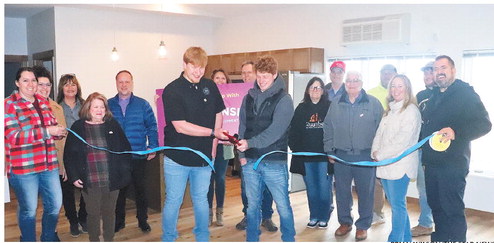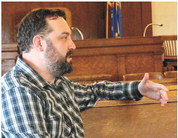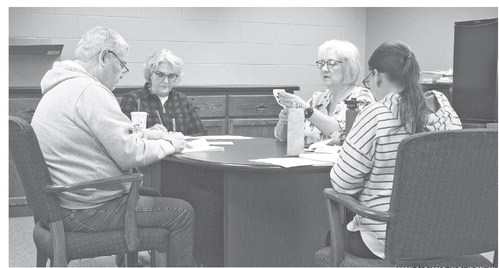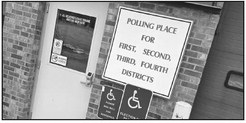Family Keys saves county over $377K


By Kevin O’Brien
Family Keys, a state-funded housing program that was initially rejected by the Marathon County Board in 2022, has saved county taxpayers over $377,000 since it started placing families in rental units about a year ago, according to Social Services director Christa Jensen. Jensen spoke to the county board at its Jan. 18 educational meeting, telling supervisors that Family Keys has prevented 38 children from being removed from their families and placed into out-ofhome care. Another three children have moved back in with their parents and two more are awaiting approval, she noted.
Even if those 38 children had been enrolled in the lowest-level care programs, she said the total annual cost would have been $377,492. An additional $3,900 would have been spent on foster care for the three kids who were reunited with their families, she added.
“I think this program has served more families than we anticipated,” she said. “The dollars and cents are huge, but the impact to families – the unmeasurable pieces – are so much bigger than that.”
The $327,100 provided by the Family Keys grant is used to temporarily pay rent for parents struggling to find a place to live after completing court-ordered requirements, with the goal of achieving selfsufficiency for the families after three to nine months, Jensen said. In its first year, the county spent $128,647 on the program, with most of that money going toward rent payments. Even if the county would have spent its own money on the program, Jensen said it would still have seen a net savings of $248,845 due to the reduction in out-of-home care.
See FAMILY KEYS/ page 2
Christa Jensen Family Keys
Continued from page 1
“You would have doubled your investment,” Jensen told supervisors.
On Feb. 2, 2023, the first participants signed a lease secured by the North Central Community Action Program (NCCAP), and since then, 16 families with 46 minor children have joined, according to data provided by Jensen.
A case manager is assigned to work with each family in the program, and the participants have weekly check-ins with those managers to ensure they are following the program requirements. After the first 90 days, the check-ins may become less frequent so that the families become more self-reliant, Jensen said.
To qualify for Family Keys, participants must agree to abide by a handbook and a financial plan requiring them to save 30 percent of their income for housing expenses. Bank statements are reviewed monthly to ensure this is happening, Jensen said.
Participants must also be employed or enrolled in an education or job training program, and they also learn other life skills related to renting or owning a home, Jensen said. Substance abuse is strictly prohibited, and drug tests can be administered at any time.
If the families want to host visitors, even for just a short time, Jensen said they must notify their case managers 24 hours ahead of time and wait for approval following a background check.
Jensen said three families have dropped out of the program because they were unwilling or unable to follow the oversight rules. On the other hand, four families have reached the point where they are able to take over their own leases and pay rent and security deposits with the money they’ve saved, she said.
Kids whose families are enrolled in Family Keys are spared the trauma of being separated from their parents and placed into the foster care system, Jensen said. In addition, she said some parents are signing car loans, improving their credit scores and opening savings accounts.
“I think this program has lifelong impacts that are going to be difficult to measure in all of those little areas, but even just the dollars and cents is pretty amazing,” she said.
When Family Keys was first presented to the county board as a pilot program in 2022, the proposal failed to earn a twothirds majority needed for approval. Supervisors who voted against accepting the grant said they were worried about the pilot turning into another entrenched government program that would cost the county untold money in the long run.
However, the grant money was inserted into the administrator’s 2023 budget proposal, and despite an attempt to remove it from the budget, it was ultimately left in. As a result, a contract between the county and the Wisconsin Department of Children and Families was signed in January of 2023 for a grant program that runs through June 30, 2025.
At last week’s meeting, Jensen thanked supervisors for helping design the program in a way that made it successful, even if it took some “difficult conversations.”
“I really appreciate the feedback we received,” she said. “I appreciate the positives and the negatives.”
Supervisor Stacey Morache, who initially voted against accepting the Family Keys grant because it originally called for several families to live in one dwelling, said she is “very excited to hear that everything is going well.”
“I’m really happy that the families get their own place to live,” she said. “That was my biggest concern when everything was presented the last time.”
Entering 2024, Jensen said her department was able to decrease its budget for foster home placements by $232,000. The county has $122,500 in grant funding to spend on Family Keys this year, but it’s looking for other funding sources to keep the program going, she said.






